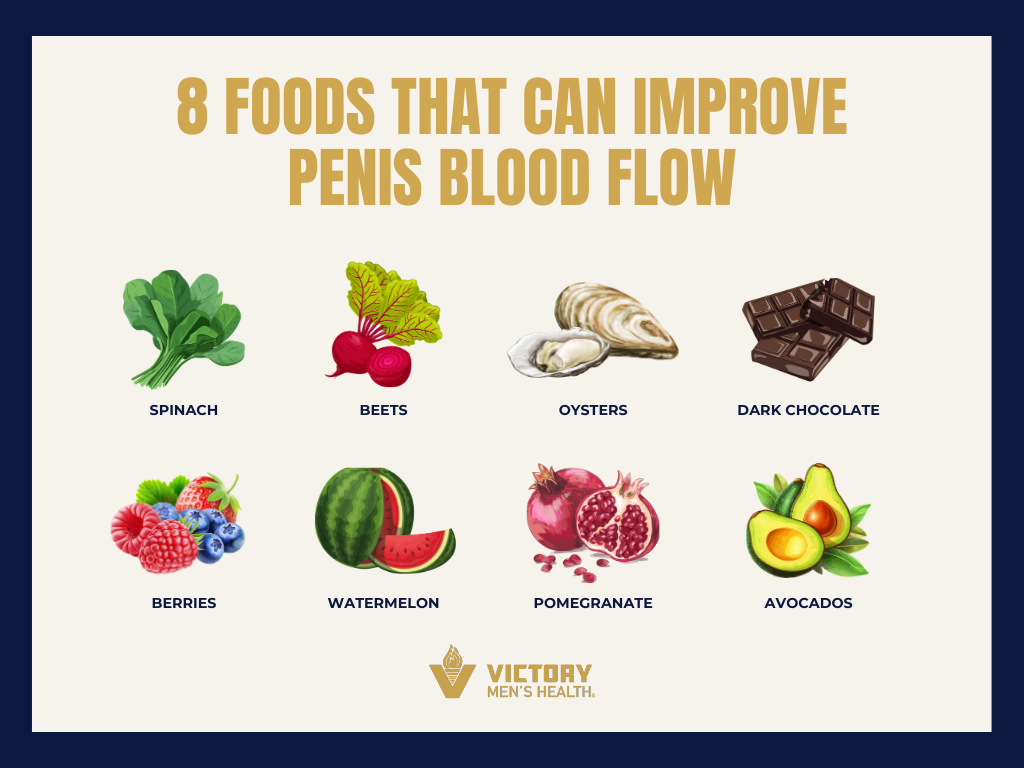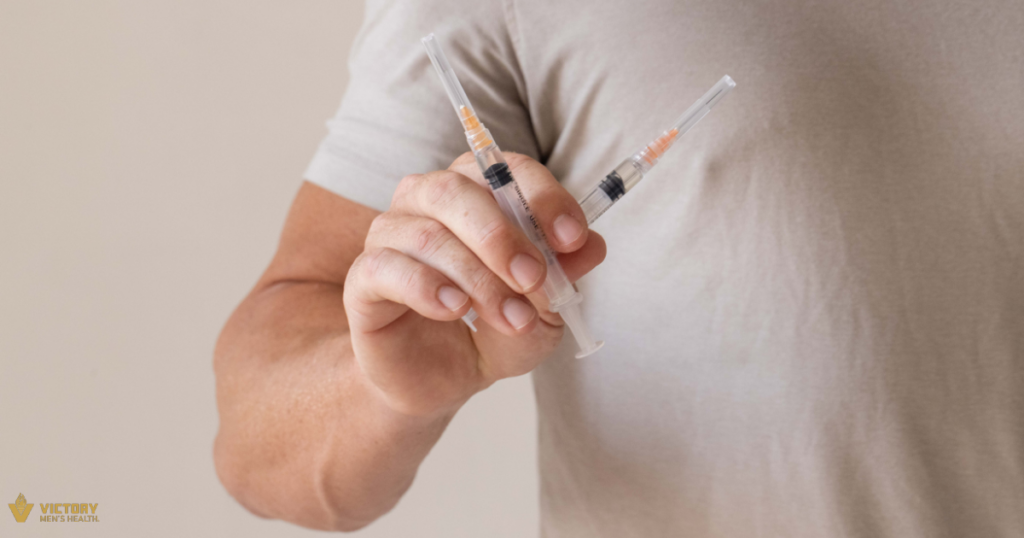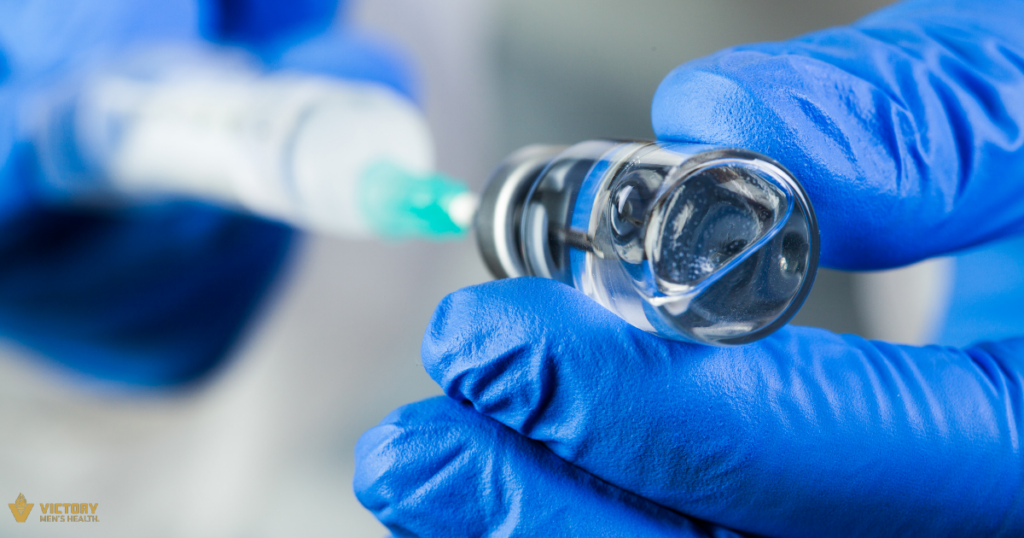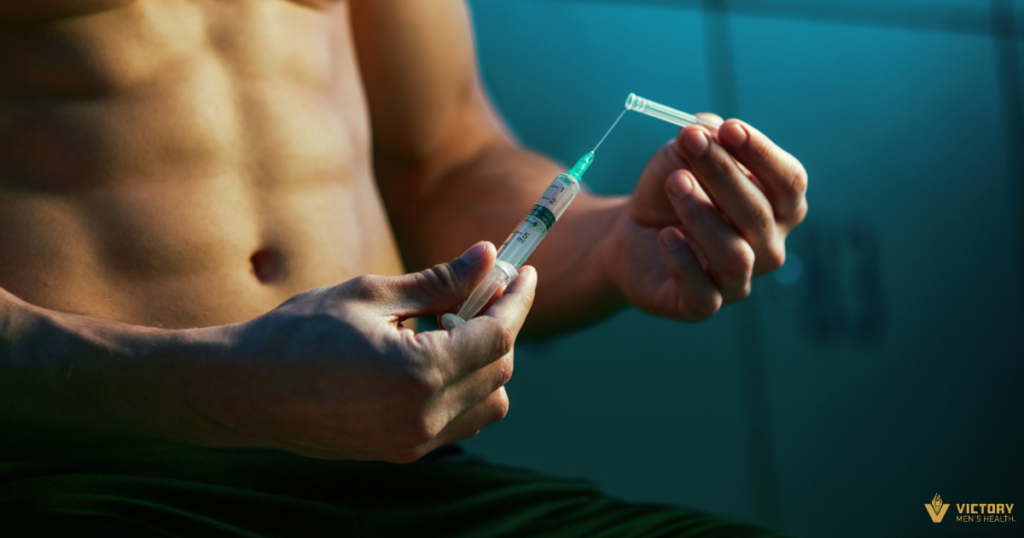If you’re dealing with erectile dysfunction (ED), you’re not alone—and you’re not out of options. While there are plenty of treatments out there, the most underrated solutions start in your kitchen. Certain foods can help improve blood flow, support healthy hormone levels, and boost your performance. In fact, the best foods for ED also support your overall cardiovascular health, which plays a huge role in sexual function.
Keep in mind, these changes aren’t magic. You won’t eat a handful of spinach today and wake up to the best sex of your life tomorrow. But if you consistently fuel your body with the right foods, many men start noticing improvements in blood flow, energy, and performance within just a few weeks.
Ready to take control of your health and support stronger, more consistent erections? In this post, we’ll break down the best foods for ED to support circulation below the belt—and a few you’ll want to cut back on. Let’s get into it.
Why Does Blood Flow Matter for Erections?
Erectile dysfunction is a common concern that affects an estimated 30 million men in the United States alone. It can arise from various factors, including obesity, insufficient exercise, certain physical health issues, and even psychological stress.
While ED medications such as sildenafil (Viagra®), tadalafil (Cialis®), and vardenafil (Levitra®) offer effective treatments, as many as 30% of men may not respond to these medications. That’s why improving your diet and lifestyle habits also plays a key role in supporting your erectile health.
How Can Food Impact Penis Blood Flow?
The food you eat can have a huge impact on your overall and sexual health. Certain foods can help improve circulation, making it easier to get and maintain strong erections. On the other hand, some foods can hinder blood flow, making it harder to perform and feel confident in the bedroom.
By choosing the right foods and avoiding the wrong ones, you can support better blood flow and enjoy a more satisfying sex life. Let’s explore how food is one important piece of the puzzle in making a difference in your sexual health.

Best Foods for ED: What to Eat for Better Erections
You’ve probably heard that “you are what you eat,” but when it comes to erections, that saying really holds up. The best foods for ED are the ones that improve blood flow, lower inflammation, and support healthy hormone levels. Incorporating these into your regular meals won’t fix things immediately, but over time, they can help you feel more energized, confident, and consistent in the bedroom.
Here are eight science-backed foods to start adding to your plate for better erections:
- Spinach – This leafy green is packed with nutrients like folate, which helps relax blood vessels and improve circulation.
- Beets – Known for its ability to boost nitric oxide production, beets can enhance blood flow to the penis.
- Oysters – Rich in zinc, oysters support testosterone production and help maintain healthy blood vessels, vital for erectile function.
- Berries – Whether it’s strawberries, blueberries, or raspberries, these fruits are loaded with antioxidants that combat inflammation and promote cardiovascular health.
- Dark Chocolate – Indulging in a square or two of dark chocolate can improve blood flow by increasing nitric oxide levels in the body.
- Watermelon – Rich in citrulline, a compound that helps relax blood vessels and improve blood flow. There’s a reason people call it “nature’s Viagra.”
- Pomegranate – Some studies suggest pomegranate juice may help boost testosterone and improve blood vessel function, thanks to its high antioxidant content.
- Avocados – Full of heart-healthy fats and nutrients that support hormone production, reduce inflammation, and keep your circulatory system running strong.
Best Foods for ED That Increase Nitric Oxide
Nitric oxide (NO) is a key player in vasodilation, the process of widening blood vessels to allow for increased blood flow. By consuming foods that boost nitric oxide production, you can support healthy circulation to all parts of your body, including your penis.
Foods rich in nitrates, such as leafy greens, beets, and garlic, are excellent choices for enhancing nitric oxide levels naturally.
Best Anti-inflammatory Foods for ED and Blood Flow
Chronic inflammation can damage blood vessels and hinder blood flow, leading to erectile dysfunction and other health issues. Incorporating anti-inflammatory foods into your diet can help reduce inflammation and promote better circulation for penis blood flow.
Some examples include fatty fish like salmon, nuts such as almonds and walnuts, and spices like turmeric and ginger.
Best Supplements for ED and Blood Flow Support
Eating well is the foundation, but even the cleanest diet has its gaps. Whether it’s a crazy schedule, limited food options, or just not getting enough of the right nutrients every day, supplements can fill in the blanks and give your body the extra support it needs—especially when it comes to blood flow and performance.
At Victory Men’s Health, we offer premium, physician-recommended supplements that are designed to work with your lifestyle and enhance your results. These aren’t just generic vitamins—they’re targeted, clinically-backed tools to help improve your circulation, energy, and sexual health.
Here are a few supplements we recommend for men who want to support better erections and optimal blood flow:
- N1O1 Lozenges – These fast-acting nitric oxide lozenges help relax blood vessels and increase circulation where you need it most. NO production declines as we age, which can contribute to ED. N1O1 Lozenges, developed by nitric oxide expert Dr. Nathan Bryan, counter this by boosting NO levels and supporting your vascular health.
- Magnesium – Supports testosterone production by reducing inflammation and oxidative stress. Magnesium can also promote better sleep, which is crucial since testosterone is primarily produced while we sleep.
- Vitamin D – Studies have shown that men with vitamin D deficiency scored lower for erectile function. Vitamin D stimulates nitric oxide production and reduces oxidative stress, both of which play a role in testosterone levels and erectile response. Vitamin D works better when paired with vitamin K2, which is why we offer them both in one powerful supplement.
Supplements aren’t a replacement for real food, but they can help you perform at your best, especially when paired with smart nutrition, exercise, and personalized care. Not sure where to start? We can help you build a supplement plan tailored to your goals.
What to Avoid: The Worst Foods for ED
Eating the best foods for ED is only half the equation—what you don’t eat matters just as much. Certain foods and habits can hurt blood flow, disrupt hormone balance, and even lead to chronic inflammation, which is a major player in erectile dysfunction.
If you’re serious about improving your performance and supporting long-term sexual health, here’s what you’ll want to limit or cut out:
- Processed foods – Think frozen meals, fast food, and packaged snacks. These are often loaded with trans fats, sodium, and preservatives that harm heart health and reduce circulation—bad news for your erections.
- Refined sugars – High-sugar diets spike insulin, increase inflammation, and contribute to weight gain and blood sugar issues, all of which can lead to or worsen ED.
- Fried foods – Regularly eating fried foods (like fries, chips, and breaded meats) can lead to clogged arteries and poor blood vessel function—both enemies of strong erections.
- Excess alcohol – Heavy drinking can suppress testosterone, increase stress hormones, and reduce your ability to get or keep an erection. Occasional drinks? Fine. Nightly binges? Not so much.
- Smoking (including vaping) – Smoking constricts blood vessels, decreases nitric oxide production, and damages the lining of arteries. It’s one of the most common lifestyle-related causes of ED.
- Excessive saturated fat – While some healthy fats are great, overdoing it on fatty cuts of red meat, butter, or cheese can raise cholesterol and impair blood flow over time.
Cleaning up your diet doesn’t mean cutting all indulgences forever—it just means being mindful. Swapping out these ED-sabotaging foods for nutrient-rich, blood flow-boosting options can make a big difference in both your health and your confidence in the bedroom.
Beyond Diet: A Holistic Approach to Beating ED
Eating the right foods is a powerful way to support blood flow and improve erections, but it’s just one piece of the puzzle. If you’re serious about reversing erectile dysfunction, it’s important to look at the full picture. Here’s what else makes a big difference:
- Maintain a healthy weight – Extra body fat, especially around the midsection, is strongly linked to lower testosterone and higher ED risk.
- Exercise regularly – Cardio and strength training improve blood flow, boost nitric oxide, and increase confidence in and out of the bedroom.
- Quit smoking – Smoking damages blood vessels and reduces circulation, which is a direct hit to your performance.
- Limit alcohol – Heavy drinking can interfere with hormones and kill your libido.
This holistic approach sets the stage for long-term sexual health, and we’re here to help you build it.
What to Do When the Best Foods for ED Don’t Cut It
Even with the best nutrition, ED doesn’t always resolve on its own. If you’re still not seeing results, it might be time to take the next step. At Victory Men’s Health, we offer personalized, science-backed treatments that go beyond lifestyle changes. Our ED solutions include:
- PDE-5 inhibitors (like Viagra® or Cialis®)
- Testosterone therapy (injections, creams, or pellets)
- Wave therapy for improved blood flow
- Priapus Shot® (P-Shot) using your own platelet-rich plasma to enhance firmness, sensitivity, and performance over time
Whether your ED is physical, hormonal, or a combination of factors, we’ll help you uncover the root cause and find a treatment that works for you.
Take Control of Your Sexual Health Today
Improving your diet is a strong first step, but lasting results come from a full, personalized approach. Whether you’re just starting to make changes or you’ve already tried a few things without success, we’re here to help you figure out what’s really going on and create a plan that works.
At Victory Men’s Health, we take the guesswork out of treating erectile dysfunction. From advanced diagnostics to proven therapies like testosterone replacement or wave therapy, we offer solutions that actually work because they’re built around you. Don’t settle for quick fixes or one-size-fits-all treatments.
Book a consultation today and take the next step toward better sexual health, confidence, and vitality.
Want More? Listen to the Podcast
For those interested in learning more, we invite you to check out the Women Want Strong Men podcast hosted by Amy Stuttle, the founder and CEO of Victory Men’s Health. It’s available on YouTube, Apple Podcasts and Spotify.









